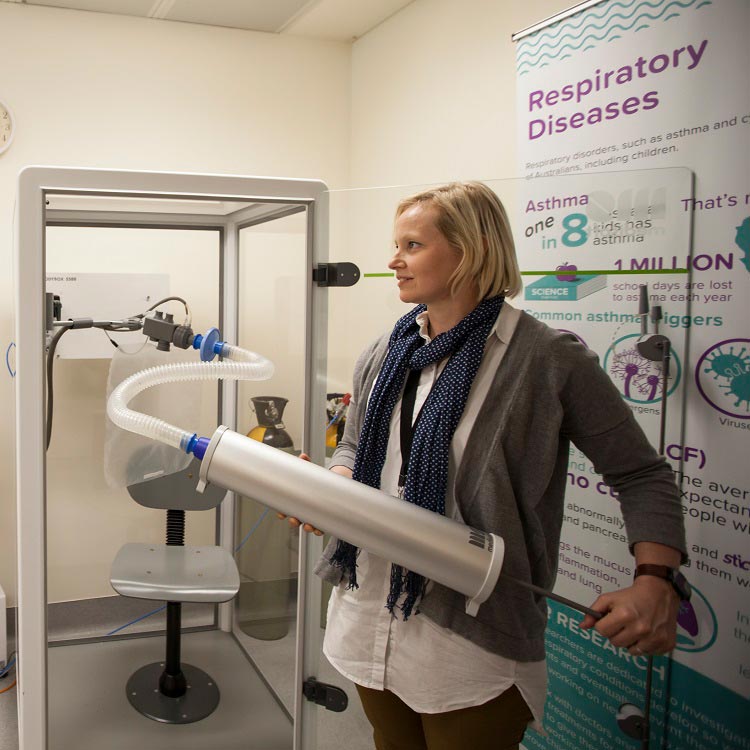Search
Research
Respiratory tract exacerbations revisited: Ventilation, inflammation, perfusion, and structure (VIPS) monitoring to redefine treatmentFor cystic fibrosis (CF) patients older than 6 years there are convincing data that suggest respiratory tract exacerbations (RTE) play an important role in...
Research
Matrix metalloproteinase activation by free neutrophil elastase contributes to bronchiectasis progression in early cystic fibrosisThe aim of this study was to assess if MMP activation positively correlates with neutrophil elastase activity, disease severity and bronchiectasis in young...
Research
Reversibility of trapped air on chest computed tomography in cystic fibrosis patientsTo investigate changes in trapped air volume and distribution over time and compare computed tomography (CT) with pulmonary function tests for determining...
Research
Feasibility of parental collected nasal swabs for virus detection in young children with cystic fibrosisNo evidence to demonstrate relationships with symptoms and viruses, prolonged symptoms, prolonged shedding or patterns of virus infections in CF
Research
House dust mite induced lung inflammation does not alter circulating vitamin D levelsWe hypothesized that allergic inflammation decreases the level of circulating 25(OH)D and tested this using a mice model of house dust mite (HDM) induced...
Research
Early respiratory infection is associated with reduced spirometry in children with cystic fibrosisWe hypothesized that the presence of these markers of cystic fibrosis lung disease in the first 2 years of life would be associated with reduced lung...
Research
Early cystic fibrosis lung diseaseThis paper is about lung disease in patients with cyctic Fibrosis and prevention strategies to slow the onset of lung disease.

News & Events
Very preterm babies at risk of declining lung function throughout childhoodA The Kids Research Institute Australia study published in The Lancet Child & Adolescent Health has found that survivors of very preterm birth face declining lung function

News & Events
Annual Community Lecture: You Are What You BreatheJoin us for our Annual Community Lecture entitled "You Are What You Breathe" with Professor Stephen Holgate.
Research
Outcomes and endpoints reported in studies of pulmonary exacerbations in people with cystic fibrosis: A systematic reviewThere is no consensus about which outcomes should be evaluated in studies of pulmonary exacerbations in people with cystic fibrosis (CF). Outcomes used for evaluation should be meaningful; that is, they should capture how people feel, function or survive and be acknowledged as important to people with CF, or should be reliable surrogates of those outcomes. We aimed to summarise the outcomes and corresponding endpoints which have been reported in studies of pulmonary exacerbations, and to identify those which are most likely to be meaningful.
